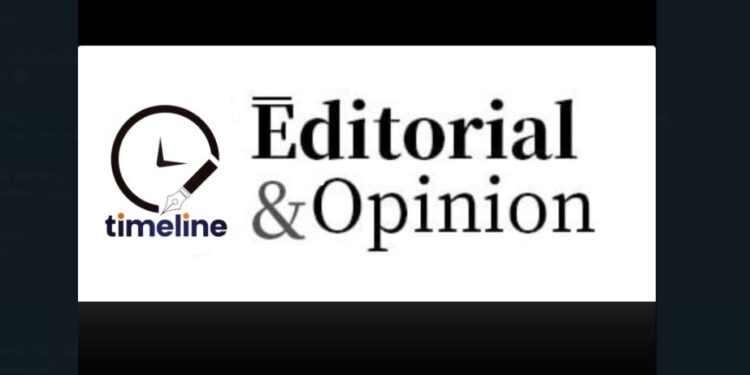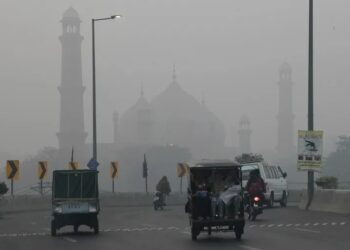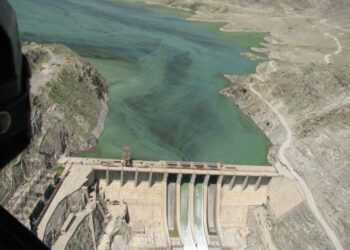Written by: Abdul Basit Alvi
In any society, the justice system is fundamental to maintaining social order, safeguarding citizens’ rights, and ensuring justice is served. A prompt and equitable justice system is not just an ideal; it is a core duty of the state. This responsibility is vital for upholding the rule of law, fostering social equity, and building public trust in government institutions.
Timeliness plays a crucial role in the justice process. Delayed justice can lead to serious negative outcomes, such as prolonged suffering for victims, wrongful detentions, and a widespread sense of injustice. When legal proceedings are slow, individuals may feel compelled to take matters into their own hands, which can result in social unrest and weaken the foundations of law and order. Swift justice is especially important in criminal cases, where victims and their families seek closure and accountability. Delays can heighten trauma and diminish public confidence in the legal system. By resolving cases quickly, the state demonstrates its commitment to protecting victims and ensuring that offenders are held accountable.
Equally essential is the principle of fairness within the justice system. A fair system ensures that everyone, regardless of background, has equal access to legal representation, is treated without bias, and can present their case. Discrimination or bias in the justice system can lead to wrongful convictions, worsening social inequalities and perpetuating cycles of injustice. Fairness also encompasses transparency and accountability; citizens must be confident that judicial processes are open to scrutiny. This transparency not only builds public trust but also reinforces the belief that justice is both achieved and visible.
To fulfill its obligation to provide a swift and fair justice system, the state must adopt several proactive measures. Sufficient resources should be allocated to the judiciary, including funding for courts, personnel, and legal aid services. Adequate training for judges and law enforcement is crucial for upholding high standards of professionalism and integrity. Regular reviews and reforms of outdated laws and procedures can help streamline the justice process. Utilizing modern technologies, such as online case management systems, can significantly reduce delays. Ensuring that legal services are accessible to all is essential, including support for those who cannot afford representation through public defenders and legal aid organizations. Engaging communities in conversations about the justice system can provide valuable insights and strengthen trust. Public forums, educational programs, and outreach initiatives can enhance understanding and encourage participation in the legal process. Establishing independent oversight bodies to monitor the justice system can help identify areas for improvement and address grievances, playing a key role in ensuring the system operates fairly and efficiently.
Certain countries are recognized for their effective judicial systems. Sweden, for instance, is noted for its efficient legal framework, emphasizing fairness and accessibility. Swedish courts prioritize transparency and public involvement, with civil cases often resolved within months. Legal aid services ensure that individuals, regardless of their financial status, can access justice. Moreover, Sweden’s focus on rehabilitation rather than punishment contributes to a lower recidivism rate, reflecting a more compassionate approach to justice.
Similarly, Singapore’s justice system is distinguished by its rapid case resolution and a strict stance against corruption. The country leverages technology to streamline legal processes, facilitating faster trials and electronic filing systems. Criminal cases are generally resolved within six months, and the legal framework is designed to be accessible to all. Singapore’s commitment to maintaining public order and safety is backed by a strong legal infrastructure that prioritizes both efficiency and fairness. Germany’s judiciary is esteemed for its independence and professionalism, featuring a well-organized legal system that prioritizes both speed and fairness. Civil cases are typically resolved within a year due to effective case management and a focus on alternative dispute resolution. The German constitution guarantees fundamental rights, ensuring all citizens are treated equally under the law, and legal aid programs assist those who cannot afford representation. New Zealand’s justice system is renowned for its accessibility and commitment to restorative justice. The country emphasizes swift resolutions, with many cases settled through mediation before reaching court, facilitating a quicker process and promoting reconciliation among the parties involved. The legal system in Norway is transparent and provides strong protections for individual rights, ensuring that justice is both fair and timely. Known for its progressive approach, Norway emphasizes rehabilitation over punishment, with an efficient legal framework that generally resolves cases swiftly. Norwegian courts prioritize fairness and strongly uphold human rights. The judiciary operates independently, fostering high public trust through transparency and accountability in legal proceedings.
In contrast, Pakistan’s justice system currently faces significant challenges. The country has struggled with terrorism for decades, with security forces engaged in combat against terrorist groups like the Tehrik-i-Taliban Pakistan and the Baloch Liberation Army. The sacrifices made by the Pakistan Army and security forces in this fight are well-documented, showcasing their commitment to defending the country and its people. Despite numerous successful operations against terrorists, a troubling reality remains: many apprehended terrorists benefit from legal loopholes, undermining the efforts of the military and security agencies.
When these individuals are brought before anti-terrorism courts, legal gaps often lead to their release due to lack of evidence. As a result, many return to their extremist groups, continuing to pose a threat to both security forces and civilians. Intelligence-based counter-terrorism operations, such as Operation Rad-ul-Fasaad and Operation Azm-e-Istehkam, have resulted in the arrest of hundreds of terrorists, yet many are subsequently freed by the courts.
The backlog of cases in the judicial system is alarming, with a 121% increase in pending cases reported from 2022 to 2023. Between 2020 and 2023, 6,550 terrorists were charged, but only 11% (774) were convicted, with just 1.5% (104) of those convictions upheld. The Anti-Terrorism Act was intended to alleviate court burdens, allowing each anti-terrorism court to handle one case at a time. However, amendments made in 1999 have led to increased workloads.
Currently, there are 91 anti-terrorism courts across Pakistan—23 in Punjab, 13 in Khyber Pakhtunkhwa, 32 in Sindh, 9 in Balochistan, 10 in Azad Jammu and Kashmir, 2 in Gilgit-Baltistan, and 2 in Islamabad. According to a 2023 review by NACTA, significant numbers of terrorism cases remain pending, with Balochistan facing the highest proportion at 34%, followed by Khyber Pakhtunkhwa at 32%, Sindh at 19%, Punjab at 8%, and Gilgit-Baltistan at 7%. Overall, there are 605 cases pending nationwide, including 48 in Punjab, 115 in Sindh, 195 in Khyber Pakhtunkhwa, 208 in Balochistan, and 39 in Gilgit-Baltistan. Between 2020 and 2023, there were 217 convictions in terrorism-related cases, broken down as follows: 152 in Punjab, 33 in Sindh, 14 in Khyber Pakhtunkhwa, 10 in Balochistan, 6 in Gilgit-Baltistan, and 2 in Azad Jammu and Kashmir. In contrast, the acquittal rate for those involved in terrorism is notably higher, with 278 terrorists acquitted due to lack of evidence in various cases. During this period, 1,650 cases remained pending, and charges against 6,550 terrorists were submitted, resulting in 774 convictions and 911 cancellations. A total of 465 terrorists appealed their acquittals, with 104 convicted and 90 acquitted. Anti-terrorism courts are also experiencing trial delays, which can benefit terrorists as their cases remain unresolved. For severe penalties like the death sentence, strong evidence is necessary, and many cases have been dismissed for lack of such evidence. In summary, terrorism cases in Pakistan face delays due to an over-reliance on witness testimonies, evidence, security concerns, and various obstructions. These issues contribute to repeated acquittals in high-profile cases, which facilitate terrorism. This situation highlights the need for establishing military courts under the National Action Plan, as the current judicial system appears unable to effectively prosecute terrorists. If the judiciary were truly strong and effective, there would have been visible justice for past arrests, but instead, the public often complains about the release of terrorists and target killers. The military courts are currently under a “stay order” from the higher judiciary, causing further delays. Ending this “stay order” is crucial for expediting trials and delivering strict punishments based on solid evidence to combat terrorism effectively.
A major weakness in the Pakistani justice system is the prolonged legal proceedings, which can last for years or even decades, creating a backlog that hampers timely justice. This not only impacts the individuals involved but also diminishes public trust in the legal system. Corruption is another significant challenge, with reports of bribery and undue influence fostering a perception of bias. The lack of strict accountability mechanisms allows these practices to continue, undermining the principles of fairness and justice. Many citizens face barriers to accessing justice due to financial constraints, exacerbated by inadequate legal aid services, which leaves them without proper representation. This situation disproportionately benefits those with financial means, perpetuating social and economic inequalities. Additionally, the inconsistent application of the law raises concerns about fairness, as influential individuals often receive preferential treatment while marginalized groups face a higher risk of injustice, further eroding public confidence in the system’s impartiality. A fair and impartial judiciary is essential to any democratic society, ensuring that justice is administered equitably and without favoritism. However, Pakistan’s judicial system faces ongoing challenges, with corruption posing a major obstacle to the core principles of justice, accountability, and the rule of law. One of the most visible forms of corruption in the Pakistani judiciary is bribery, with reports of judges accepting bribes to manipulate case outcomes. This undermines the integrity of the judicial process, enabling individuals with financial resources or political connections to improperly influence judicial decisions, thereby diminishing public confidence in the system’s impartiality. Corruption within the judicial system also reveals itself through the inconsistent application of the law. Cases involving powerful individuals or those with political ties often receive preferential treatment, while others may be delayed or lead to unjust outcomes. This selective enforcement not only undermines the principle of equality before the law but also fosters a culture of impunity. Additionally, the deliberate prolongation of legal proceedings through delay tactics and procedural abuses is another facet of corruption in the judicial system. By exploiting loopholes, some individuals extend cases unnecessarily, obstructing the prompt justice that citizens deserve.
Political interference in the judiciary remains a significant concern in Pakistan, with politicians pressuring judges and influencing judicial processes, potentially compromising judicial independence. The fear of repercussions or the lure of political patronage can affect judicial decisions, creating an environment where justice is vulnerable to outside influences. According to Transparency International Pakistan’s Corruption Perceptions Survey 2023, the judiciary ranks among the three most corrupt institutions in the country.
The widespread corruption, particularly within the lower judiciary and police systems—critical components of any civilized society—poses a serious threat to the community’s overall well-being. Unfortunately, the civilian judicial system in Pakistan has struggled to deliver timely and transparent justice. A major issue is the prolonged resolution of legal cases, some of which can span generations without resolution. The burden on the courts is substantial, with both the superior and lower judiciaries facing an overwhelming backlog of 2.144 million cases. In 2021 alone, 4.102 million cases were resolved, while 4.06 million new cases were filed, resulting in a pending caseload of 2.16 million at the beginning of the following year. Statistics from the Supreme Court, Federal Shariat Court, and five high courts indicate that in 2020, 229,822 cases were disposed of, while 241,250 new cases were initiated. By the end of the year, the pending cases in superior courts totaled 389,549, slightly above the previous year’s count of 378,216. Similarly, the district judiciary faced 1,783,826 pending cases at the start of its preceding year. Throughout the year, 3,872,686 cases were resolved, while 3,822,881 new cases were filed, resulting in a total pending caseload of 1,754,947 by the end of 2021.
The establishment of military courts in Pakistan was initiated following the tragic terrorist attack on the Army Public School in Peshawar on December 16, 2014. In response, the 21st Constitutional Amendment, which took effect on January 6, 2015, established military courts with the authority to expedite trials for specific offenses. Since their formation, military courts have handled approximately 717 cases, successfully concluding 546 of them. Notably, military courts have imposed death sentences on 310 terrorists and various terms of rigorous imprisonment on 234 others, highlighting their critical role in delivering swift justice. These courts are specialized institutions in Pakistan that address anti-state elements and threats to national security. In response to the attacks on May 9 by militants targeting civil and military installations, the government invoked the Military Act and established military courts. Importantly, decisions made by military courts can be appealed in higher civilian courts, addressing concerns about potential human rights violations.
Military courts serve a distinct function in many countries, often dealing with cases involving military personnel, national security, and terrorism. For instance, in the U.S., military courts operate under the Uniform Code of Military Justice (UCMJ) and handle serious offenses like desertion and espionage, including terrorism-related cases tried in Guantanamo Bay after 9/11. Egypt uses military courts to try civilians accused of crimes against the military government, while Turkey expanded its military court system after the 2016 coup attempt to prosecute numerous individuals, including civilians. Brazil’s military justice system deals with military personnel and crimes against military institutions, and in Nigeria, military courts address offenses by military members, especially in the context of insurgencies like Boko Haram. These examples demonstrate that countries are committed to effectively addressing terrorism and anti-state elements through specialized and efficient justice systems.
Additionally, constitutional courts play a crucial role in upholding the rule of law and ensuring that legislation aligns with a nation’s constitution. These specialized courts interpret constitutional provisions, resolve disputes related to constitutional law, and protect fundamental rights. Many countries, such as Germany, have constitutional courts; for instance, the Federal Constitutional Court (Bundesverfassungsgericht) ensures that laws comply with the German Basic Law and has the authority to review legislation and adjudicate disputes between federal and state authorities. The court is recognized for its influential rulings that have significantly shaped German law and society, especially in areas like human rights and freedom of expression. Italy’s Constitutional Court (Corte Costituzionale), established in 1956, plays a vital role in reviewing laws and safeguarding constitutional rights. It has the authority to declare legislation unconstitutional and to resolve conflicts between state and regional laws. Comprising 15 judges, the court ensures a diverse representation of legal expertise, and its decisions are binding, carrying substantial implications for Italian jurisprudence. Meanwhile, the Constitutional Court of South Africa, established in 1994, is the highest authority on constitutional matters, playing a crucial role in protecting human rights and upholding the values enshrined in the South African Constitution. The court has significantly impacted issues like equality, access to justice, and the rights of marginalized groups, serving as a cornerstone of South Africa’s democracy. Spain’s Constitutional Court, established in 1979, upholds the Spanish Constitution, resolves constitutional disputes, and declares laws unconstitutional, thus maintaining the balance of power between the central government and autonomous communities. Austria’s Constitutional Court, founded in 1920, ensures legislation complies with the Constitution, adjudicates disputes between government levels, and hears individual complaints about constitutional rights, playing a vital role in protecting democratic principles. These examples illustrate how countries utilize their judicial systems to manage typical cases efficiently, creating specialized courts for more complex or urgent matters.
In today’s intricate global landscape, effective judicial mechanisms for political, constitutional, and terrorism-related issues are crucial. Special courts have emerged to address these challenges, providing focused adjudication for cases involving complex legal questions or urgent national security concerns. These courts aim for timely responses to pressing issues, particularly in political cases that involve election integrity and governmental authority, ensuring fair and swift resolutions to maintain public trust. For example, electoral fraud cases may necessitate expedited proceedings to avoid governance instability. Special courts also offer a neutral platform for politically sensitive cases, mitigating potential biases that standard courts might exhibit. Constitutional courts play a vital role in interpreting the constitution and protecting fundamental rights; specialized courts focused on constitutional issues ensure swift resolutions regarding civil liberties and legislative authority. In response to rising terrorism threats, many nations have established special courts to address national security offenses, focusing on cases related to terrorism and organized crime. Due to the urgency and complexity of these cases, special courts can expedite trials and deliver justice without compromising security. In terrorism-related cases, these courts can also adopt measures to safeguard sensitive information and witnesses, effectively addressing the unique challenges presented by such offenses. Additionally, these courts can help avert the politicization of terrorism cases by ensuring that proceedings are fair and transparent. They are not intended to distract from typical cases by getting entangled in political and constitutional issues.
The people of Pakistan deserve a fair and swift justice system, achievable through the prompt functioning of constitutional and military courts, which will alleviate the burden on existing regular courts. Immediate action is needed to secure the fundamental right to a transparent and efficient justice system for all citizens of Pakistan.

























